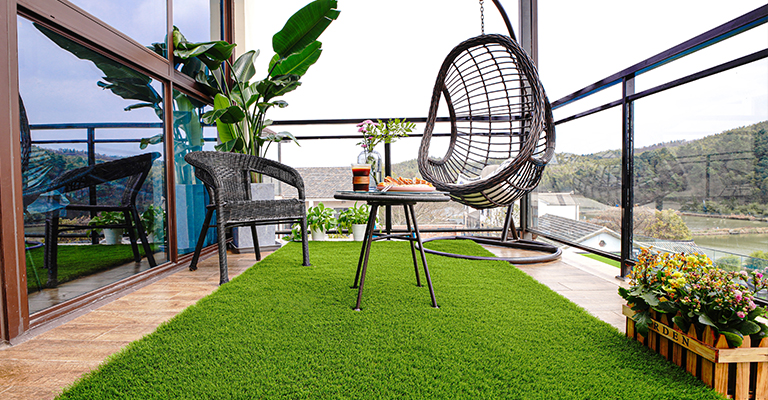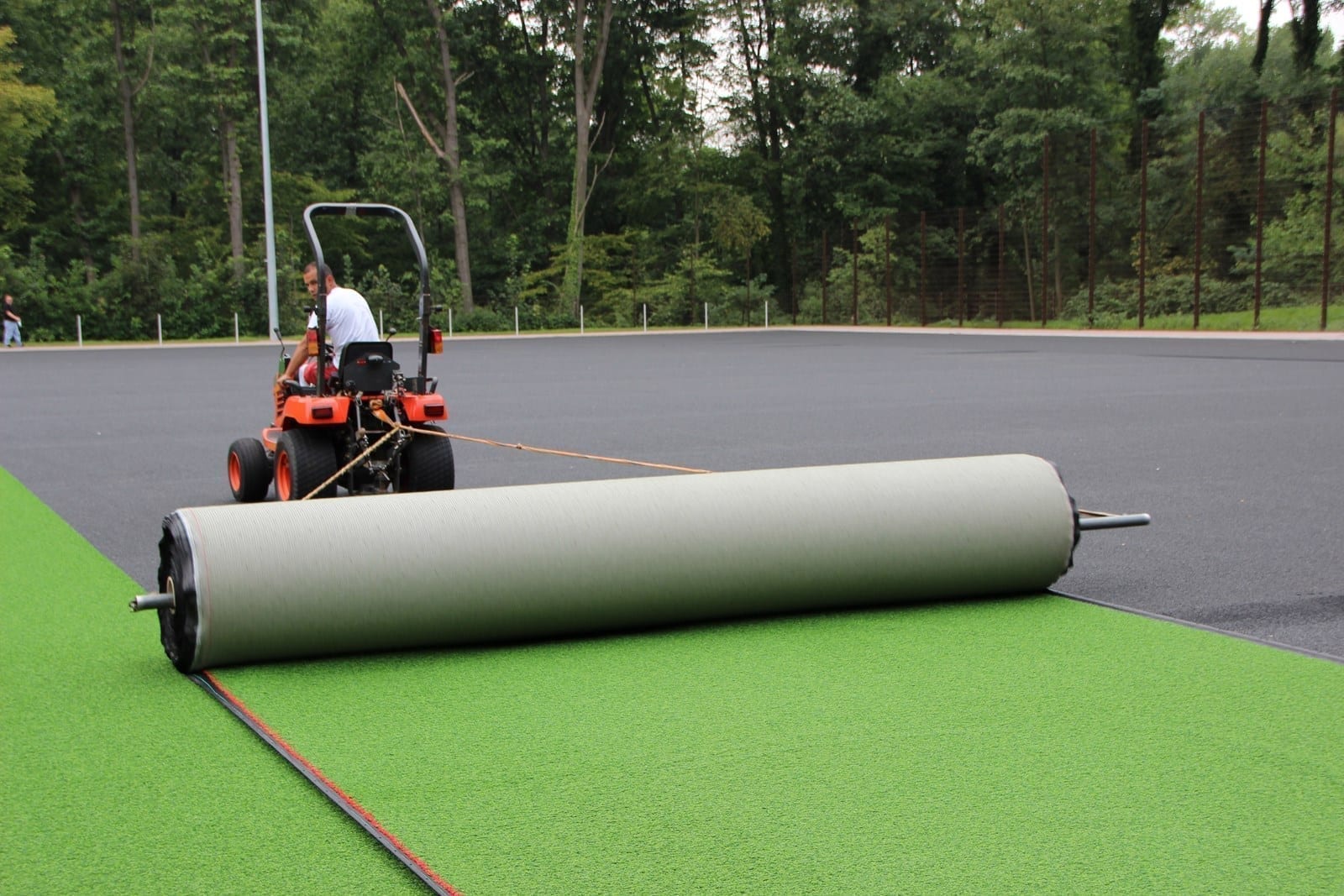Enhance Your Yard with Reliable Turf Installation Phoenix AZ Services
Enhance Your Yard with Reliable Turf Installation Phoenix AZ Services
Blog Article
Look Into the Environmental Benefits of Opting for Synthetic Grass Solutions
The adoption of synthetic grass services provides an engaging opportunity to address pushing ecological challenges. By substantially lowering water use and reducing the application of harmful chemicals, these options not only promote sustainable landscaping but additionally shield local environments. The lower carbon impact connected with decreased maintenance activities adds to a more sustainable strategy to land administration. Nonetheless, the ramifications of these benefits expand beyond plain preservation initiatives, increasing questions regarding their long-lasting effect on habitat conservation and total environmental balance. Exploring these dimensions discloses a complicated interplay worth taking into consideration.
Water Conservation Perks
One of the most substantial benefits of man-made grass is its ability to save water. In comparison, synthetic turf does not require watering, considerably decreasing the total need for water resources.
By getting rid of the requirement for routine watering, synthetic grass adds to sustainable landscape methods and helps mitigate the environmental effect of excessive water intake. The preservation of water extends to the decrease of runoff, which can lead to dirt disintegration and river air pollution.
Additionally, the setup of synthetic grass allows house owners and communities to allot water resources more effectively, concentrating on crucial usages such as alcohol consumption water and agriculture. The change towards synthetic grass not just advertises responsible water use yet also aligns with broader environmental objectives targeted at preserving all-natural sources.
As areas progressively prioritize sustainability, the water preservation benefits of man-made grass provide an engaging case for its fostering in business and residential landscaping jobs.
Lowered Chemical Use
The change to synthetic grass significantly decreases the reliance on chemical treatments commonly made use of in all-natural lawn maintenance. Conventional grass administration typically involves the application of plant foods, chemicals, and herbicides to promote development and control insects. These chemicals can pose risks to human health, local wild animals, and the environment, contributing to soil and water contamination.
On the other hand, synthetic turf removes the demand for these harmful materials. Once installed, it needs very little maintenance, mainly being composed of routine cleansing and irregular infill replenishment. This decrease in chemical use not just profits the prompt environment however additionally adds to broader environmental stability. By reducing the launch of synthetic compounds into the ecological community, synthetic turf promotes much healthier soil and water supply.
Moreover, the absence of chemical overflow associated with synthetic grass installations aids protect local waterways from pollution, supporting marine life and maintaining biodiversity. Phoenix turf companies. As neighborhoods significantly prioritize sustainable practices, choosing man-made lawn provides a feasible service that aligns with environmental preservation objectives. With this shift, residential or commercial property owners can enjoy lavish environment-friendly rooms without jeopardizing environmental health, leading the way for an extra sustainable future
Reduced Carbon Impact

Moreover, the installment of synthetic grass can lead to substantial water conservation. All-natural yards need significant quantities of water for watering, which not just includes in the carbon footprint connected with water removal and treatment however likewise pressures neighborhood water resources. On the other hand, artificial grass requires very little maintenance, needing no watering, therefore considerably reducing water usage and its connected power prices.
Additionally, the durability of fabricated lawn adds to its decreased carbon influence. With a life-span of up to 15 years or even more, the need for constant substitutes is lessened, causing much less waste and lower energy intake in production and throwing away typical grass options. On the whole, fabricated lawn offers a lasting alternative for environmentally conscious landscape design.
Environment Preservation
Habitat preservation is a crucial consideration in the argument over landscape design options, particularly when comparing artificial turf to natural lawn. Natural yard yards frequently call for considerable upkeep, including making use of fertilizers, herbicides, and chemicals, which can adversely impact neighborhood ecological communities. These chemicals can leach right into the dirt and rivers, hurting indigenous plants and animals and interrupting local habitats.
In contrast, artificial grass provides a possibility to decrease the eco-friendly impact of landscaping. By selecting artificial grass, home owners can reduce the disturbance of all-natural environments connected with typical yard treatment methods. Fabricated turf removes the demand for damaging chemicals, thus shielding nearby wildlife and preserving the integrity of surrounding ecological communities. The installation of man-made grass can lead to the conversion of previous lawn locations right into even more biodiverse landscapes, such as pollinator yards or indigenous plant areas, which can support local wildlife.
Eventually, the shift to synthetic grass not just conserves water and reduces upkeep initiatives however likewise promotes a more unified partnership between human activities and the natural setting, advertising environment preservation in the process.
Long-Term Sustainability
Long-term sustainability is an essential factor in reviewing the benefits of man-made turf over traditional lawn yards. One of one of the most considerable benefits of artificial grass is its sturdiness; it can last up to 15-20 years with minimal upkeep, whereas all-natural yard needs frequent reseeding and check out this site substitute. This durability lowers the requirement for continuous sources, such as water, fertilizers, and chemicals, which are vital for keeping a healthy and balanced grass lawn.
Additionally, synthetic turf adds to a reduction in carbon discharges related to yard treatment equipment. Typical lawns commonly call for gas-powered mowers, trimmers, and blowers, every one of which add to air contamination. Artificial turf companies phoenix. In comparison, synthetic grass eliminates the requirement for such tools, advertising a cleaner environment
Additionally, the manufacturing of synthetic grass significantly uses recycled products, boosting its sustainability profile. As producers embrace try this out eco-friendly methods, the environmental impact of synthetic grass remains to decrease.

Final Thought
The adoption of synthetic grass options offers substantial environmental benefits, consisting of significant water preservation, lowered dependence on hazardous chemicals, and a lower carbon footprint. Additionally, fabricated lawn help in protecting natural habitats by reducing land disturbance and promoting long-term sustainability with the usage of long lasting products. Collectively, these variables emphasize the capacity of synthetic grass to contribute favorably to ecological health and wellness and offer a viable alternative to typical landscape design practices in an increasingly resource-conscious globe.
In comparison, synthetic turf does not require watering, substantially minimizing the overall need for water resources. By decreasing the release of synthetic substances into the ecological community, man-made turf advertises healthier dirt and water systems.
Additionally, the installment of man-made turf can result in significant water conservation. In comparison, artificial grass needs very little upkeep, requiring no watering, therefore dramatically decreasing water use and its linked energy prices.

Report this page